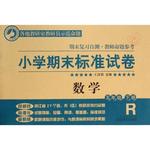题目内容
In the mid-1950s, I was a somewhat bored early-adolescent male student who believed that doing any more than necessary was wasted effort.One day, this approach threw me into embarrassment
In Mrs. Totten’s eighth-grade math class at Central Avenue School in Anderson, Indiana, we were learning to add and subtract decimals (小数).
Our teacher typically assigned daily homework, which would be recited in class the following day.On most days, our grades were based on our oral answer to homework questions.
Mrs. Totten usually walked up and down the rows of desks requesting answers from student after student in the order the questions had appeared on our homework sheets.She would start either at the front or the back of the classroom and work toward the other end.
Since I was seated near the middle of about 35 students, it was easy to figure out which questions I might have to answer.This particular time, I had completed my usual two or three problems according to my calculations.
What I failed to expect was that several students were absent, which threw off my estimate.As Mrs. Totten made her way from the beginning of the class,I desperately tried to determine which math problem I would get.I tried to work it out before she got to me, but I had brain freeze and couldn’t function.
When Mrs. Totten reached my desk,she asked what answer I’d got for problem No.14.“I…I didn’t get anything,” I answered,and my face felt warm.
“Correct,” she said.
It turned out that the correct answer was zero.
What did I learn that day? First, always do all your homework.Second, in real life it isn’t always what you say but how you say it that matters.Third,I would never make it as a mathematician.
If I could choose one school day that taught me the most, it would be that one.
1.What does the underlined part in Paragraph 1 indicate?
A.It is wise to value one’s time.
B.It is important to make an effort
C.It is right to stick to one’s belief.
D.It is enough to do the necessary.
2.Usually, Mrs. Totten asked her students to _______.
A.recite their homework together
B.grade their homework themselves
C.answer their homework questions orally
D.check the answers to their homework questions
3.The author could work out which questions to answer since the teacher always _______.
A.asked questions in a regular way
B.walked up and down when asking questions
C.chose two or three questions for the students
D.requested her students to finish their usual questions
4.The author failed to get the questions he had expected because _______.
A.the class didn’t begin as usual
B.several students didn’t come to school
C.he didn’t try hard to make his estimate
D.Mrs. Totten didn’t start from the back of the class
5.Which of the following can be the best title for the passage?
A.An Unforgettable Teacher B.A Future Mathematician
C.An Effective Approach D.A Valuable Lesson
1.D
2.C
3.A
4.B
5.D
【解析】
试题分析: 作者回忆了自己青春期早期,非常的自负。然而,在一堂数学课上所发生的一件尴尬的事情,给作者一次有价值的教训,也让作者明白了许多道理。
1. 句意理解题。根据文章第一段I was a somewhat bored early-adolescent male student who believed that doing any more than necessary was wasted effort. 及下文作者的讲述可知做任何必要的都是白费力气。故选D.
2. 细节理解题。根据文章第三段最后一句On most days, our grades were based on our oral answer to homework questions.可知作者的数学老师要求学生口头回答家庭作业的问题。故选C.
3. 细节理解题。根据文章第五段中Since I was seated near the middle of about 35 students, it was easy to figure out which questions I might have to answer.可知作者坐中间,很容易推算出他要回答的问题。故选A.
4. 细节理解题。根据文章第六段首句What I failed to expect was that several students were absent, which threw off my estimate.可知由于几位同学缺席,导致了不能够知道他回答哪个问题。故选B.
5. 文章标题推测题。在文章中作者回忆了自己青春期早期,在一堂数学课上所发生的尴尬的事情,给作者一次有价值的教训。故选D.
考点:考查故事类短文阅读

 小学期末标准试卷系列答案
小学期末标准试卷系列答案